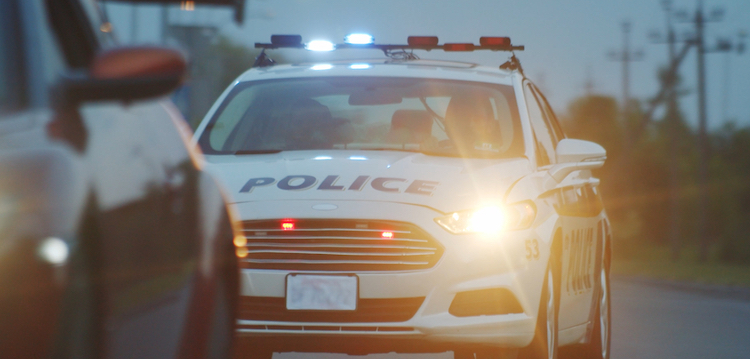Confiscation of man's 'Cops Ahead' signs violated First Amendment rights, appeals court says

Image from Shutterstock.
A police officer’s confiscation of two signs reading “Cops Ahead” violated the First Amendment rights of the man who was holding them, a federal appeals court has ruled.
The 2nd U.S. Circuit Court of Appeals at New York revived Michael Friend’s claims that the Stamford, Connecticut, police officer violated his First Amendment right to free speech and his Fourth Amendment right against malicious prosecution. But the appeals court ruled against Friend on his 14th Amendment claims regarding his $25,000 bail.
Friend was alerting drivers to an enforcement operation ahead that targeted cellphone use while driving.
“There was no basis for suggesting that Friend’s speech does not receive the protection of the First Amendment,” the 2nd Circuit said in a Feb. 27 decision.
In addition, the appeals court said, the officer’s actions were not narrowly tailored to serve a compelling government interest. Although the government has an interest in saving lives and enforcing distracted driving laws, the officer has not explained how issuing citations is a compelling interest, the 2nd Circuit said.
The case returns to a federal district court for a determination whether the officer was protected by qualified immunity and whether Friend had satisfied all the elements of his malicious prosecution claim. The American Civil Liberties Union Foundation of Connecticut represented Friend, according to a Feb. 28 press release.
The decision was written by Judge Steven Menashi, an appointee of former President Donald Trump.
Friend had been arrested on a misdemeanor charge of interference with an officer during the April 2018 incident.
A police officer confiscated Friend’s first sign, told him to leave the spot on the sidewalk where he was standing, and said he would be arrested if he returned with a sign.
Friend walked a block further away and held up a second sign with the same message. The police officer arrested Friend and confiscated his two cellphones. He was held on a $25,000 bail until a commissioner reduced it to zero dollars at 1:30 a.m. the next day.
Prosecutors dropped the charge and said Friend had actually helped police because drivers got off their cellphones when they saw the signs.
A federal district judge had said Friend’s speech wasn’t protected because it didn’t rise to the level of an opinion related to a matter of public significance.
“But that is not correct,” Menashi wrote. “The First Amendment does not ‘permit the government to imprison any speaker so long as his speech is deemed valueless or unnecessary.’”
The case is Friend v. Gasparino.
Hat tip to Courthouse News Service, which covered the opinion.



